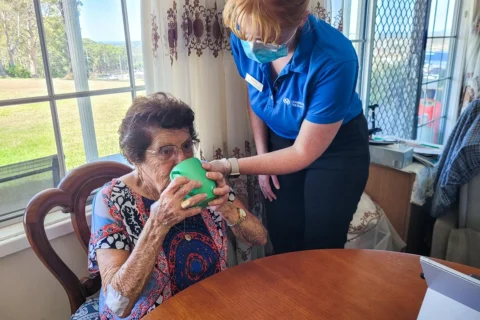About the article
What is the NDIS?
The NDIS provides varying amounts of funding for its participants depending on individual needs, which are then spent on required services, such as personal care, domestic care, social support and allied healthcare.
Prior to its implementation, support for people living with disabilities was managed at a state and territory level.

What does NDIS stand for?
The NDIS stands for the National Disability Insurance Scheme.
Who can access the NDIS?
People living with a disability can access support through the NDIS. To determine individual eligibility, specific criteria are outlined within the NDIS.
To view your eligibility with the NDIS, check the information page on the NDIS website about your eligibility.
Is the NDIS available to children (under 18) and adults (over 18)?
Yes. The NDIS is in place to support those of all ages, from children through to adults and as long as someone has been accepted onto the scheme prior to turning 65 they are able to continue on the scheme past 65 years of age.
After the age of 65, an NDIS participant may elect to transition to aged care funding schemes such as the Commonwealth Home Support Programme, Home Care Package Programme or Residential Aged Care.

What services will the NDIS fund?
The NDIS aims to enable people living with disabilities to live with a reasonable quality of life, outlined as ‘a normal or ordinary level of living standards’.
Typically, people receiving funding under the NDIS receive services assisting with domestic duties and healthcare services. There is also a focus on increasing capacity and independence.
As such, the NDIS provides funding for a range of supports & services for participants including :
Domestic services
- Gardening
- Cleaning
- Cooking
- Home maintenance
- Personal care
Healthcare services
- Carers
- Physiotherapy
- Occupational Therapy
- Exercise Physiology
- Assistive equipment & technology (such as wheelchairs)
- Dietetics
- Home modifications (such as ramps and handrails)
Disability Support
- Plan management
- Support coordination
- Holidays
- Employment support
- Day programs
- Short Term Accommodation
- Supported Independent Living
- Specialist Disability Accommodation

Does the NDIS provide funding for a mixture of services or just one?
The NDIS will often provide individuals with a combination of services and supports.
The Scheme recognises that each participant will need an individualised approach, and so each participant is assessed on a case by case basis.
Initial planning meetings are held to identify what assistance is appropriate. Participants often require support at planning meetings either by family members, guardians, support coordinators, carers or medical professionals. Documentation from health professionals such as GPs, specialists, Occupational Therapists or Physiotherapists is often used to help compose a suitable plan to support new participants or those undergoing a plan review.
Typically, the first plan is revisited and refined either six or twelve months after commencement.


When did the NDIS start?
The NDIS was introduced by the Gillard Labor Government on 1 July 2013, beginning with a trial phase known as the NDIS Launch. The NDIS began to be introduced across Australia from July 2016. It is being progressively rolled out and is not due to be completed until 2019–20 [1].
Community Therapy has proudly been operating under the NDIS since it was rolled out in Newcastle, NSW in 2016.
Is the NDIS available all throughout Australia?
Yes. The NDIS is a federal scheme and has been progressively rolled out through all states and territories of Australia. This is why the term ‘National’ is used in the name National Disability Insurance Scheme.

Where do NDIS services take place?
Most NDIS services will take place in the participant’s home. This is simply because many services will be in the form of domestic or personal care assistance, transport to and from the community, or allied health in the home.
However, some services may occur in the community or at an organisation’s premises (for example a gym or Physiotherapy clinic). This is because a NDIS participant’s meaningful goals may relate to community access or a participant may have a preference for receiving their allied health service at a clinic or in their home.

Who can help me apply for the NDIS?
There are a range of different services to help people apply for the NDIS.
Typically, people receive assistance through the local area coordinator program or via disability advocates.
The NDIS may be phoned directly on 1800 800 110.
You may also use the search function on the NDIS – Offices and contacts page to search for their offices.

After entering your postcode, such as “2280”, a list of nearby NDIS offices and Local Area Coordinators will appear.

Note: Typically, you do not need to visit any offices. Most applications can be performed over the telephone or online, using video conferencing.
Are Local Area Coordinators private companies or NDIS organisations?
Some disability advocates are private companies, while some are not-for-profit organisations who do not charge a service fee.
Local area coordinators are the first point of contact for most people looking to access the NDIS.
Community Therapy encourages people to look at a range of different disability advocates in order to determine the best fit for them, particularly if one-to-one support is important.

How do I apply for the NDIS? Will I need a medical assessment?
Yes. The NDIS requires specific criteria to be met when applying. Some disabilities involve straightforward documentation to apply, while others require a more comprehensive medical assessment (usually provided by a specialist related to that disability).
For example, a Neurologist and an Occupational Therapist may be required to assess someone’s functional capacity and requirements for equipment and home modifications.
Information on providing evidence of your disability is available on the NDIS website here and information about how to apply is accessible here.
How do I know if I’ve been accepted or rejected by the NDIS?
During your planning meeting with a NDIA planner and any support persons, you can request to receive a copy of your plan or decision in a variety of ways including Barille, electronic text (on CD), large print or audio (on CD), or translated into your preferred language.
You will also receive a copy of your plan in the mail and through the myplace portal.

What happens if someone is rejected by the NDIS?
If you are not happy with your plan or the decision you have the right to ask for an internal review if your plan by the NDIA.
If you’re not happy with the result of the internal review, you can apply for a review by the Administrative Appeals Tribunal (AAT).
More information on this process can be found here.
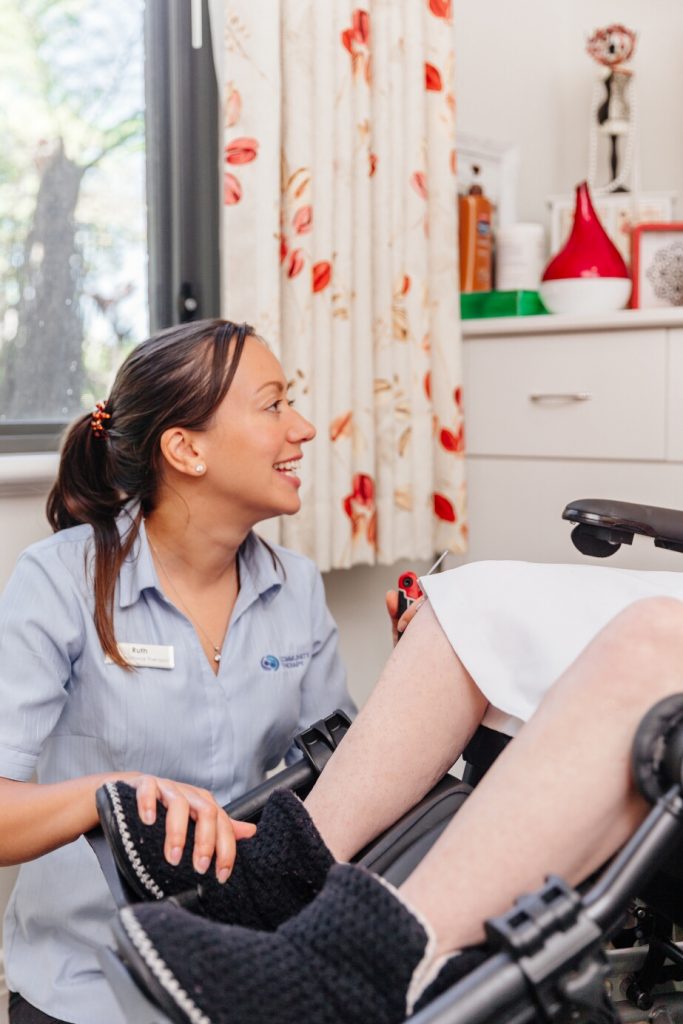
How long after my planning meeting will it be until I receive my plan?
As you can imagine this varies with people’s situations and you can expect several days to several weeks from your planning meeting to receipt of your plan.
How much funding will I receive from the NDIS?
The funding received by each individual is highly variable given that each person is assessed on a case by case basis.
Experienced NDIS staff will make a determination based on the levels of support being requested by an individual and their medical professionals. They will also factor in the level of funding going to people in comparable situations with similar levels of disability.

In what ways will the NDIS communicate with me?
Communication preferences can be discussed when NDIS plans are put in place. NDIS staff (as well as NDIS registered providers) will make contact in different ways depending on what works best for each participant.
It is important to advise of communication preferences when dealing with any service provider.
What are the different types of plan management?
NDIS plans can be managed in one of three ways: self management, plan management and agency management. The differences between these options primarily relates to how payments are made for the services provided:
-
Self-management:
The individual participant is responsible for their budget and paying invoices issued by suppliers.
-
Plan management:
The individual consents to having a company handle their invoices and payments for them.
-
Agency management:
The individual leaves it up to the NDIS as well as NDIS registered providers to manage payments through the NDIS portal.
It is important to note that you can manage sections of your NDIS plan in different ways, meaning that your whole plan does not need to be managed the same way.
What does an NDIS plan look like?
An NDIS plan will look like a succinct summary of a participant’s living arrangements and priorities. It will also include details of funding and how that funding is managed.
From a Physiotherapy, Occupational Therapy and Dietetics perspective, Community Therapy would consult the NDIS plan in order to determine what therapy goals have been identified and as well as how many hours of funding have been allocated to achieving those goals.
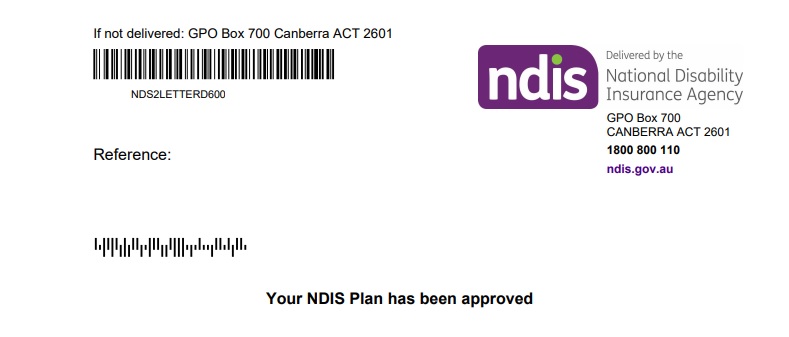
What’s the difference between self-managed and agency managed?
Self-management is appropriate when a participant, or their support person, wants to be heavily involved in the budgeting and allocating of their funding.
Plan management or agency management is more appropriate for those who feel that they don’t need to be heavily involved in their budget management and allocation of funding.
What do NDIS Plan Managers do?
NDIS plan management is when a private company manages a participant’s plan. The purpose of this is to simplify financial management of a participants plan. A NDIS plan manager usually performs many tasks on behalf of their client, these may include
- Managing service schedules
- Managing claims with the NDIS
- Paying service providers and third parties
- Updating participants with any changes to their plan
- Storing all documentation and receipts
The funding to receive NDIS Plan Management is also paid for by the NDIS.

What is an NDIS plan in simple terms?
An NDIS plan is a document that lists the board strategy and budget on how someone will achieve their NDIS goals and be supported.

Can there be a mixture of NDIS plan management types?
Yes.
NDIS plans are often divided into sections, and each section can be managed differently. A participant could choose to self-manage one section, while having another section agency managed.
Can I swap between plan management types?
Yes, it is possible to change management types. This can be discussed directly with the NDIA, local area coordinator or with assistance from a support coordinator.
What happens if I’m not happy with my current plan management?
The NDIS has a formalised process for feedback and complaints relating to the NDIS and NDIS registered providers. This means that plan management companies are held accountable to the NDIS standards.
Complaint handling processes will be stipulated within each company’s formal client agreements. If a participant is not satisfied with how a complaint is handled within the company, they are able to lodge a complaint through the NDIS website.
Please view the following resources:
NDIS – Feedback and complaints
NDIS Commission – How to make a complaint about a provider
How often are NDIS plans reviewed?
NDIS plans are typically reviewed on a yearly basis. However, these timeframes can vary. A first plan will generally be issued with a six or twelve month review date.
Each NDIS plan will indicate a starting date as well as an end date, with the review usually taking place within two months prior to the end date.

How do I spend NDIS funding allocation?
Funding is consumer directed, meaning it is up to the participant (and the people with consent to support them) to allocate and spend funding in order to achieve the participant’s goals.
For example, if a person has twenty hours in their improved daily living budget, they may choose to spend ten of those hours on Physiotherapy. They would then work with the Physiotherapist to determine how to best use those hours to reach specific goals within specific timelines.
What is meant by the term ‘core supports’?
Core supports refers to supports which are considered essential to normal living. They may include domestic help and help with personal care.
What happens if I believe I should receive more funding for additional support?
In most cases, this will require an assessment from a medical professional.
For example, an Occupational Therapist would write a report, using clinical evidence, that a participant may require additional funding for a new wheelchair.
These reports and requests are then reviewed by the NDIS to ensure the request is reasonable and necessary.
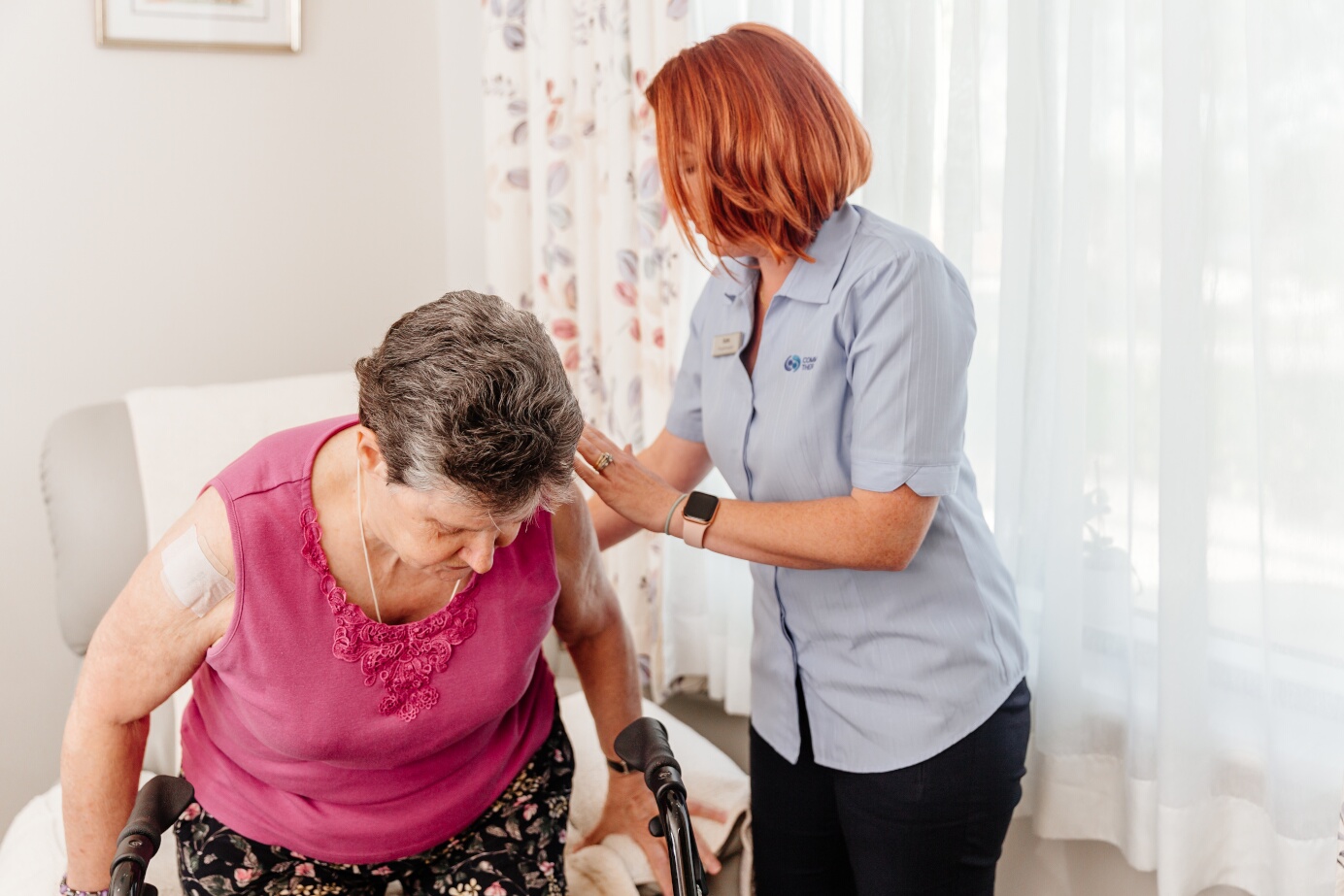
What happens if I am on the NDIS and I turn 65?
If someone is an approved NDIS participant, prior to their sixty-fifth birthday, they can choose to remain an NDIS participant or to be assessed by the My Aged Care system.
An Aged Care Assessment Team (ACAT) can determine what level of funding someone may be eligible for within the aged care system.
What happens if I want to move properties?
Moving properties will have no bearing on someone’s status as an NDIS participant.
However, it may involve an additional assessment from an Occupational Therapist. This is to determine any changes to the level of support required, or if additional equipment or modifications are needed at the new property.
If the participant isn’t moving too far, most of their support services and providers would continue unchanged.

What happens if I want to move states?
This is a great example of why the scheme has moved from being a state and territory-based scheme to a national scheme.
In the past, moving between states would have meant becoming part of a different disability funding scheme. Now, participants can move freely because funding is managed at a federal level.
Participants will simply need to connect with a different service provider in their new state. Most providers, especially registered NDIS providers, will have transition plans in place so that they can support the transition process.

How does a healthcare company become an NDIS provider?
There is a formalised process for healthcare providers to become NDIS registered providers. This process is handled by the NDIS commission.
There are different levels of registration, typically referred to verification or certification. Most sole traders will be held accountable to the verification system, while companies will be held accountable to the certification system. The certification system is more rigorous and requires extensive auditing by third party auditing companies.
Has Community Therapy passed verification systems?
Yes, at Community Therapy we are proud to have passed the certification process with SAI Global.

How does a company become an NDIS coordinator?
Becoming an NDIS coordinator involves a process of registering with the NDIS commission. Much like becoming a registered NDIS provider, NDIS coordinators go through a verification or certification process.
How is the NDIS funded?
The NDIS is funded at a federal level. Previously, disability supports were allocated as a mixture of state and federal government funding. The states and territories agreed to move to a centralised national organisation called the National Disability Insurance Agency (NDIA).
Funding is now drawn from a combination of state and federal governments, but delivered by the NDIA.
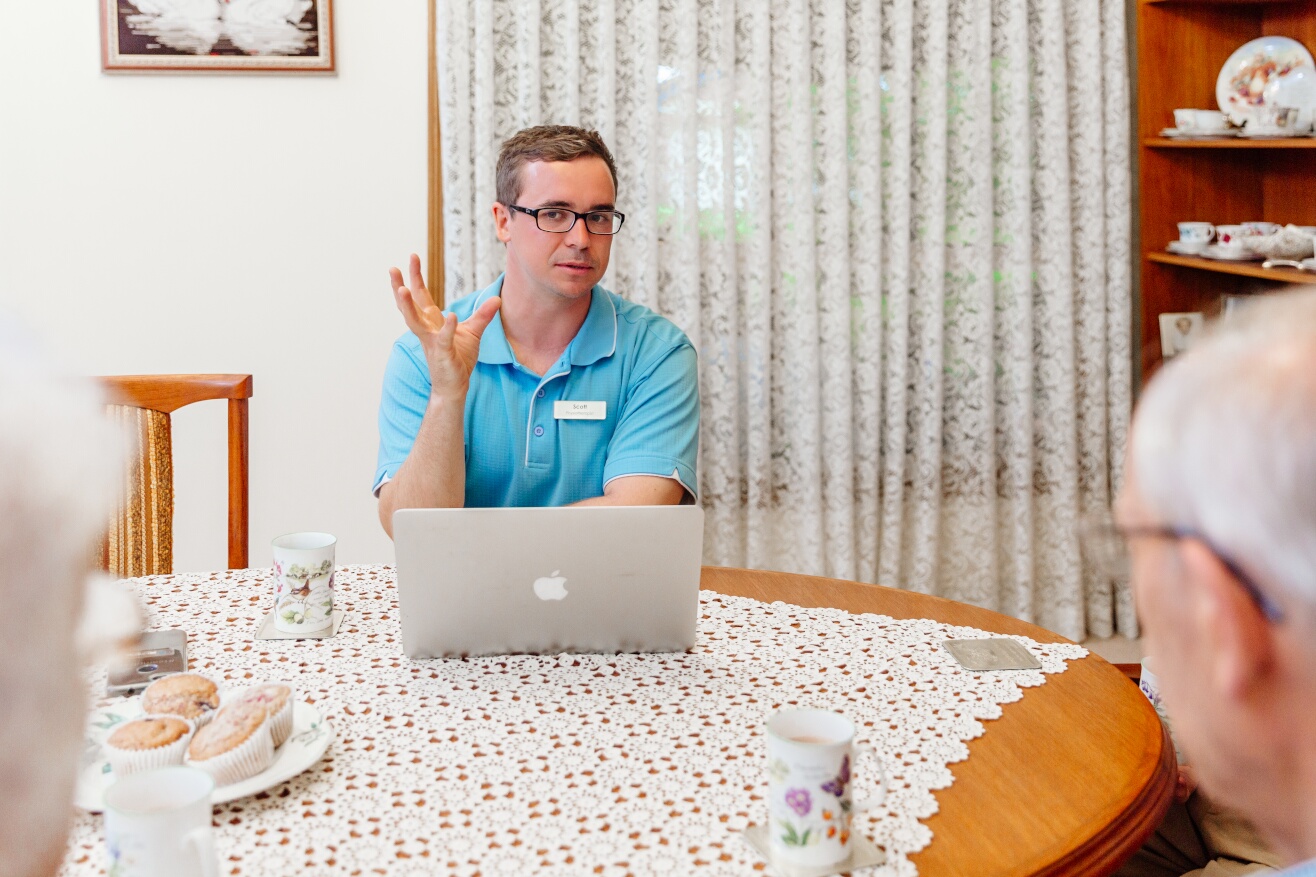
Why was the NDIS introduced?
The NDIS was introduced to streamline funding and delivery of supports for Australian’s living with disability. Prior to the NDIS, state and territory-based schemes all operated independently, supported in different ways by federal funding and grants.
The NDIS has provided a streamlined, consistent scheme across the whole country.
What is the difference between the NDIS and the NDIA?
This is a common question as the acronyms are so similar.
The National Disability Insurance Agency (NDIA) is the agency that controls or implements the existing scheme relating to managing disability for Australians. The scheme being implemented is the National Disability Insurance Scheme (NDIS).

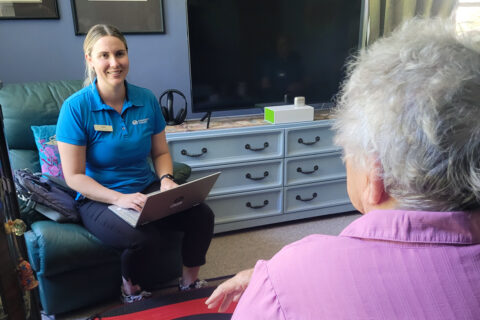
 November 27, 2024
November 27, 2024
